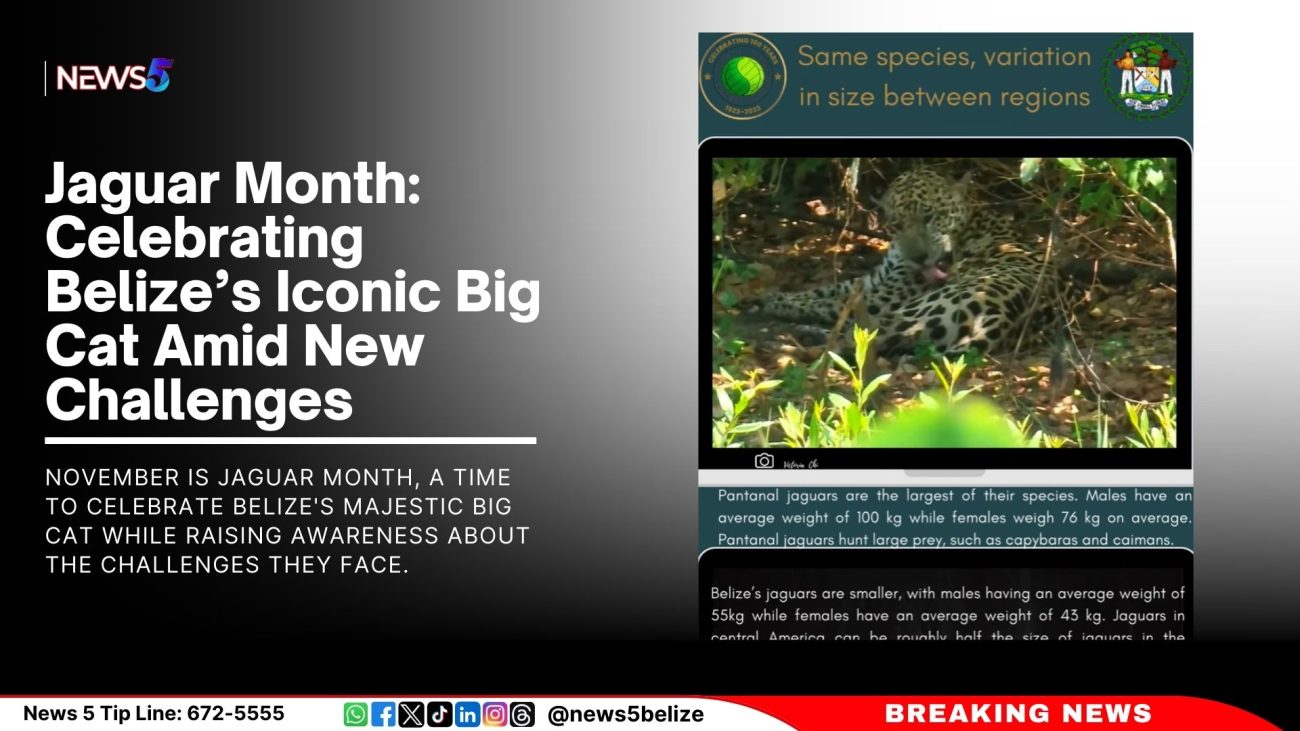Jaguar Month: Celebrating Belize’s Iconic Big Cat Amid New Challenges
November is Jaguar Month, a time to celebrate Belize’s majestic big cat while raising awareness about the challenges they face. As one of the most recognised symbols of the country’s biodiversity, jaguars are crucial to the health of Belize’s ecosystems. However, this month also highlights the growing need to address human-jaguar conflicts, especially in light of recent events.
A History of Conflict
Human-jaguar conflict is not new. Adult jaguars, particularly those that have lost their natural prey, are more likely to hunt livestock, leading to tensions between farmers and conservationists. Young jaguars, in contrast, rarely cause conflicts, as they are less experienced hunters and often stay within forested areas with ample food.
These interactions underscore the delicate balance between conserving this apex predator and addressing the concerns of communities whose livelihoods may be affected by jaguar predation.
New Pressures from Displacement
Recent flooding across Belize has added to the pressure on jaguar populations. Rising waters have displaced these big cats from their natural habitats, forcing them into areas closer to human settlements. This increases the likelihood of encounters and, consequently, conflicts. Jaguars, already skilled at adapting to various environments, may find temporary refuge in agricultural areas, heightening tensions.
Competition for Prey
Another key issue is the shared appetite for armadillos and gibnuts, species highly valued by both jaguars and humans. This overlap creates competition for resources, with humans hunting these animals for food while jaguars rely on them for survival. As human populations expand and hunting intensifies, jaguars may struggle to find enough prey, pushing them toward livestock or other less favourable food sources.
Why Jaguar Conservation Matters
Jaguars are more than just a cultural icon; they play a vital ecological role by regulating prey populations and maintaining balance within their habitats. Protecting jaguars ensures healthier ecosystems, which in turn supports agriculture, water resources, and tourism—pillars of Belize’s economy.
A Call to Action
Jaguar Month is an opportunity to promote coexistence strategies that address both conservation goals and human needs. Initiatives such as community education, better livestock management, and habitat restoration can help reduce conflicts. Additionally, efforts to monitor and protect displaced jaguars are e.







Facebook Comments